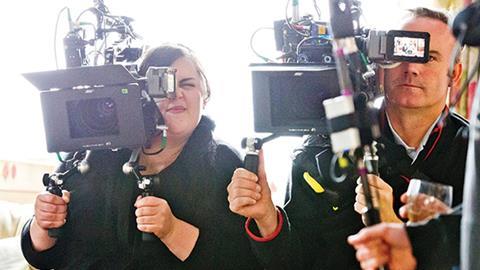Bectu-sponsored State of Play demands minimum pay rates and greater commissioner accountability
A damning Bectu-sponsored survey has found that unscripted production is operating in an “an unhealthy and unsustainable” manner and called for the introduction of minimum pay rates and greater commissioner accountability.
The inaugural State of Play: management practices in unscripted TV report, which surveyed 1200 individuals, has issued 14 key findings and six recommendations after its authors eviscerated current working practices, which include long hours, difficult working conditions and insecurity.
Due to this plethora of factors, the report said achieving a work-life balance is an almost impossible task.
“It is an open secret that production teams are routinely required to fulfil unrealistic expectations with inadequate resources and within timeframes that militate against equitable recruitment and humane working practices,” said the report.
“Professionals across the industry, at all levels, are effectively complicit in this system due to a culture that normalises and valorises working excessive hours with relatively little compensation: this is ‘just the way the industry works’.”
Conducted by a trio of Bournemouth University professors with support from Facebook group Viva La PD, the 100-page report highlights the negative impact of the shift from staff-based employment to a freelance workforce.
“[This] has resulted in an abdication of responsibility for welfare, training and development by broadcasters, with no corresponding move to take on this responsibility by independent production companies, many of which lack the resources, the expertise or the desire to do so,” they said.
Pay
The report branded pay rates ”unfair, inequitable and lacking transparency”.
Freelancers with a similar level of experience working in comparable roles are often paid wildly different rates, even within the same organisations, it added.
Existing rate cards, including those set by Bectu, Pact and the Production Manager Association, were found to be routinely ignored, resulting in a call for minimum pay standards.
Such a system would need to be “flexible and responsive”, with clarity around roles and responsibilities. It would be underpinned by an organisation able to protect the rights of workers who ”call out companies” for not meeting them.
“Unjustifiable inequities in pay lead to mistrust and anxiety that impacts working relationships as well as individual wellbeing,” the authors said.
Broadcasters
Elsewhere, broadcasters were urged to take responsibility for the pipeline created to meet their demands, with a call for a code of practice to ensure they offer sufficiently long lead times, ethical recruitment and individual commissioning editors being held accountable for their decisions.
A more radical suggestion involved commissioners only awarding shows to indies who meet certain standards of employment.
Further recommendations
- · Production companies should take responsibility for the wellbeing of all staff, including those employed on freelance contracts
- · Bectu and other representative organisations should work with industry leaders to develop employment standards and protocols, as well as raising awareness of key issues throughout the industry
- · An industry coalition should set up a third-party organisation, recognised by Ofcom, to monitor and support the management of human resources within the industry and to act as an independent standards body to protect the rights of employees, including freelancers
- · An industry coalition, working with ScreenSkills, and drawing on DCMS support, should address the gap in the provision and uptake of training for television staff with hiring and team management responsibilities
- · The DCMS should actively support the strategies outlined above, enforcing the compliance of broadcasters with working practices designed to improve working conditions, diversity and skills development throughout the industry






























2 Readers' comments